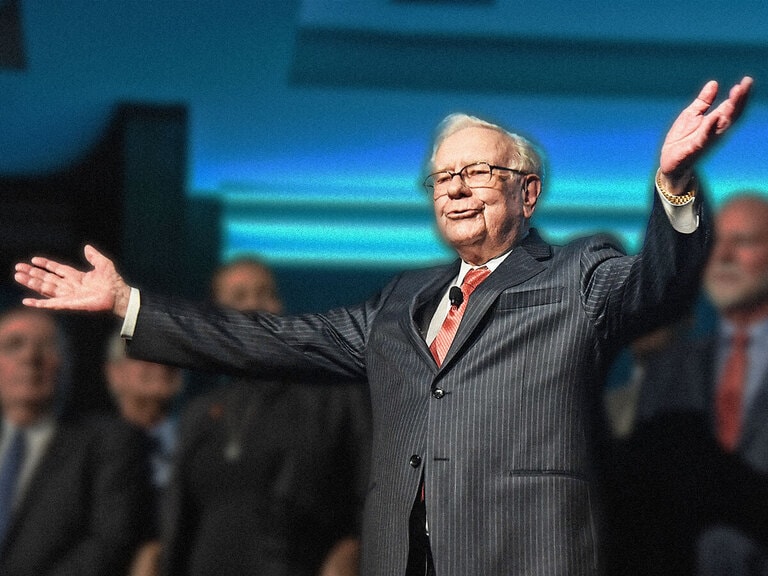Introduction
US President Donald Trump’s tariffs and a deepening trade war, particularly with China, have spooked investors and sparked concerns about stock valuations.
Despite Trump’s U-turn in announcing a 90-day reprieve for all countries that had not retaliated, there are fears the US economy could now slip into a recession. Higher prices could lead to lower consumer and enterprise spending.
The uncertainty has dragged down equities across the board. Future earnings of growth stocks are looking more expensive than they did before Trump’s tariffs were announced. The volatility has also posed the question of whether value stocks are an attractive option for investors.
According to J.P. Morgan Managing Director Scott Blasdell, tariffs present an opportunity for value investors.
“After several years when value has lagged growth, we understand that investors may question why value will outperform this time. Too often in the recent past, all value had going for it was low relative valuation. Now there’s a catalyst: During Trump 2.0, value is about to become more ‘growthy’,” wrote Blasdell earlier this month.
Here are four stocks that could do well amid tariff turmoil.
| HD | CPB | PEP | JNJ |
Market Cap | $351.71bn | $11.37bn | $198.06bn | $365.65bn |
P/S Ratio | 2.20 | 1.13 | 2.17 | 4.15 |
P/E Ratio | 23.73 | 22.05 | 20.78 | 26.21 |
PEG Ratio (5-Year Expected) | 4.10 | 0.63 | 2.45 | 1.03 |
Estimated Sales Growth (Current Fiscal Year) | 2.73% | 6.95% | 0.04% | 1.62% |
Estimated Sales Growth (Next Fiscal Year) | 4.18% | -1.12% | 3.64% | 4.16% |
Source: Yahoo Finance
Share price performances through April 11
Home Depot [HD]
Year-to-date: -8.45%
Past 12 months: 3.45%
The home improvement retailer could do well in a tough macroeconomic environment, even if the US slipped into a recession because the US’ housing stock is aging and needs updating. CEO Ted Decker told CNBC’s Jim Cramer recently that the country is short of demand by between two and five million units.
As for sourcing, more than half of its products come from North America, with the rest coming from China, India, Vietnam, Taiwan and across Europe
The company is no stranger to dealing with tariffs. “We know down to the SKU level the point of origin, the classification of the tariff, the potential impact. And from there we start working with our supplier partners to mitigate that tariff impact,” said Decker on the Q3 2019 earnings, when he was Executive Vice President of merchandising.
Tariffs, especially on China, are still likely to have an impact, Decker noted in the Q3 2024 earnings call in November, but he believes the company can work through this “in a differentiated manner than others in the industry.”
The Campbell’s Company [CPB]
Year-to-date: -7.16%
Past 12 months: -9.56%
The consumer packaged goods company, best known for its eponymous soup brand, could be a defensive tariff play.
The Campbell’s Company slashed its full-year sales forecast in March, citing weak demand for its snacks. “Depending on how long these tariffs would be in place as well as the extent of the tariffs, we might need to take other actions ... for instance, pricing for some of our products,” added CEO Mick Beekhuizen on its Q2 2025 earnings call.
Nevertheless, the company is targeting 2–3% revenue growth and 7–9% EPS growth through 2027. It launched a $250m cost-saving initiative back in September in a bid to boost profits over the long term.
PepsiCo [PEP]
Year-to-date: -4.18%
Past 12 months: -11.67%
The beverage and snack maker imports some key ingredients, while the tariffs on aluminum have the potential to increase the production cost of its cans.
“We’re not immune to this [tariffs] — we are less impacted than most of the businesses,” PepsiCo CEO Ramon Laguarta told Yahoo Finance following its Q4 2024 earnings report.
In a bid to revive its North American beverage unit, which declined 3% in sales volume in the most recent quarter due to shifting consumer preferences, PepsiCo has agreed to pay $1.95bn for probiotic soda brand Poppi. Soft drink rival Coca-Cola [KO] launched its own healthy soda drink in February.
While higher prices might lead to slower sales in the near term, PepsiCo has raised its annualized dividend for fiscal 2025 by 5%. It is considered a dividend aristocrat — a stock that has increased its payout for at least the past 25 years — making it a potentially attractive option for investors seeking a steady income.
Johnson and Johnson [JNJ]
Year-to-date: 5.76%
Past 12 months: 4.26%
The world’s largest biotech company by revenue has more manufacturing facilities in the US than anywhere else. Nevertheless, in anticipation of Trump’s impending tariffs on pharmaceuticals, the drugmaker plans to boost its investment in the country by 25% to $55bn over the next four years.
“Today’s announcements accelerate our nearly 140-year legacy as an American innovation engine tackling the world’s toughest healthcare challenges,” said Johnson and Johnson CEO Joaquin Duato in a press release in March.
The drugmaker has been in a drawn-out legal wrangle over alleged links between its talcum powder and cancer. While a US court recently rejected a $10bn settlement, the company held a special call on April 1 in which it said it is confident of meeting its 2025 guidance and its long-term outlook.
Conclusion
Tariffs have posed questions about the valuation of numerous stocks across numerous industries, particularly in tech and artificial intelligence. Companies in consumer staples, healthcare and retail could do well amid economic uncertainty in the US, because demand generally remains steady during periods of downturn.
Disclaimer Past performance is not a reliable indicator of future results.
CMC Markets is an execution-only service provider. The material (whether or not it states any opinions) is for general information purposes only, and does not take into account your personal circumstances or objectives. Nothing in this material is (or should be considered to be) financial, investment or other advice on which reliance should be placed. No opinion given in the material constitutes a recommendation by CMC Markets or the author that any particular investment, security, transaction or investment strategy is suitable for any specific person.
The material has not been prepared in accordance with legal requirements designed to promote the independence of investment research. Although we are not specifically prevented from dealing before providing this material, we do not seek to take advantage of the material prior to its dissemination.
CMC Markets does not endorse or offer opinion on the trading strategies used by the author. Their trading strategies do not guarantee any return and CMC Markets shall not be held responsible for any loss that you may incur, either directly or indirectly, arising from any investment based on any information contained herein.
*Tax treatment depends on individual circumstances and can change or may differ in a jurisdiction other than the UK.
Continue reading for FREE
- Includes free newsletter updates, unsubscribe anytime. Privacy policy





